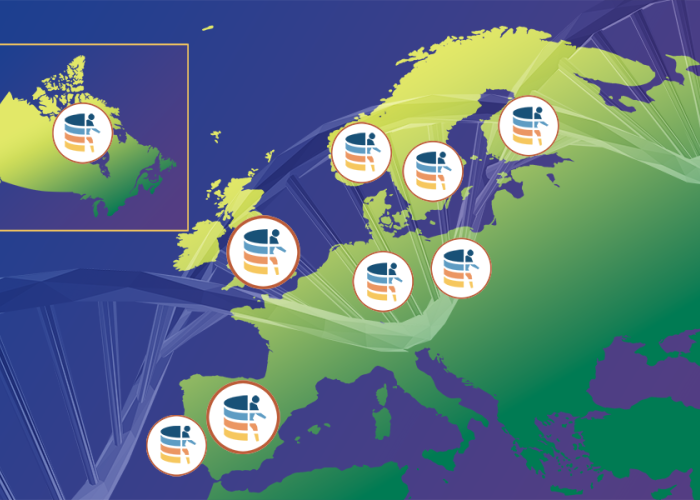
Canada’s Michael Smith Genome Sciences Centre at BC Cancer hosts the Canadian Node of the Federated EGA
In a major milestone for international biomedical research and the future of personalized medicine, the Canadian Genome-Phenome Archive (CGA), part of the Pan-Canadian Genome Library (PCGL) has joined the Federated European Genome-Phenome Archive (Federated EGA), marking the federation’s first significant expansion outside of Europe.
The CGA is hosted by Canada’s Michael Smith Genome Sciences Centre at BC Cancer.
“This milestone partnership provides Canadian researchers with a swift, secure connection to global collaborators, fostering scientific and clinical innovation while continuing to uphold our commitment to privacy and compliance,” says Dr. Steven Jones, lead for the CGA node and Co-Director of Canada’s Michael Smith Genome Sciences Centre at BC Cancer.
Federated EGA is jointly managed by the Centre for Genomic Regulation (CRG) in Spain and the European Bioinformatics Institute at the European Molecular Biology Laboratory (EMBL-EBI) in the U.K. It was built following the data governance model of the European Genome-Phenome Archive, which is funded by the “la Caixa” Foundation.
“This is a landmark moment for the global scientific community,” says Prof. Arcadi Navarro, Director of the EGA team at the Centre for Genomic Regulation. “Global health challenges do not respect national borders. By expanding beyond Europe and adding the Canadian node, we consolidate the Federated EGA as the world’s most comprehensive, secure and diverse resource for genomic and health data to tackle urgent questions. This will have a transformative impact on scientific discovery and personalized medicine initiatives around the world.”
Canada is the first country outside of Europe to join Federated EGA
The CGA becomes the latest national resource to connect its datasets to a global community, increasing the volume and diversity of genomic information available and paving the way for new studies.
Genomic data from Canadian biomedical research projects will be permanently archived and distributed through the CGA, a national service that adheres to rigorous privacy and security protocols.
The CGA was established in collaboration with the Digital Research Alliance of Canada and CGEn, Canada’s national platform for genome sequencing and analysis. The initiative is supported by the Canadian Institutes of Health Research (CIHR) and the Canada Foundation for Innovation (CFI).
Data governance model inspired by Central EGA
Federated EGA was built following the data governance model of the European Genome-Phenome Archive (EGA), which is hosted by the MareNostrum supercomputer located at the Barcelona Supercomputing Center – Centro Nacional de Supercomputación (BSC-CNS). The information is also stored at EMBL-EBI’s headquarters in Hinxton, U.K.
As of February 2025, the EGA contains 16PB of human health and genomic data, around three quarters the size of the entire U.S. Library of Congress’ digital collections (21PB). The data belongs to around 18 thousand different research studies carried out all over the world, with the most common type of study being related to cancer research. More than 25 thousand scientists from academia and industry have requested access to the data within the repository since its creation in the year 2010.
This expansion will be key to unlocking the full potential of personalized medicine. By integrating many different data types under a single, secure framework, researchers can achieve a more comprehensive view of disease mechanisms and patient health. This, in turn, will enable more precise diagnoses, targeted treatments and preventative measures that take into account an individual’s unique genetic background and environmental context.
This article has been adapted from its original version. Read the Centre for Genomic Regulation story here.